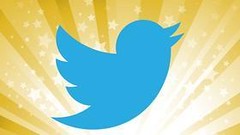Former President Donald Trump went from being one of the most popular Twitter users to being suspended from ever posting on the site again.
“We made a decision with the best information we had,” Twitter founder Jack Dorsey said, defending his choice to remove President Donald Trump from the platform. Dorsey later added to the discussion in a tweet where he expressed that he does not take pride in banning the president. This controversial decision was made swiftly after the storming of the Capitol building.

Along with the ban comes many questions regarding the integrity of freedom of speech in the United States on social media. This instance opened up many American citizens to the idea that what they see online is filtered and somebody has the power to censor opinions.
Trump’s ban was not because of his points of views though. It was because of his incitement of violence that led to multiple deaths at our nation’s capitol building. Just as any other Twitter user would be banned after calling for violence, the president is not exempt.
After Twitter, numerous other social media platforms followed suit in preventing further calls to action from the former president. Trump has been banned from using almost every popular social media platform though he only violated the terms of service on Twitter, the rest followed the lead Twitter took. These include Snapchat, Instagram, Facebook, as well as even platforms the president would not likely use, such as Discord or TikTok.
The creator and CEO of MyPillow, Mike Lindell, has also been banned from using his Twitter platform. He has been a known supporter of the former president for a number of years now. Lindell recently made tweets defending President Trump from being banned, This occurrence is what got him banned from Twitter, not only on his personal account but the MyPillow company page as well. He has spoken out against Jack Dorsey before his second ban and seems to be an example of the “precedent” that Dorsey said he wanted to avoid.
 “Mike Lindell” by Gage Skidmore is licensed under CC BY-SA 2.0
“Mike Lindell” by Gage Skidmore is licensed under CC BY-SA 2.0
There have been countless bans that went under the radar since the attempted insurrection on Jan. 6. About 70,000 Twitter users have been banned for having an affiliation with QAnon, a group of far-right conspiracy theorists. They believe that Donald Trump was going to rid the government of pedophiles and Satanists.
“Regardless of their outlandish ideologies, there is just as great of a danger in the growing number of censorships,” Connor Ogden, a political science major at Jefferson University, says. He hears a variety of opinions daily, and he fears that certain ones being restricted can create a bigger problem than the ideologies themselves.
Twitter, like other big tech companies, has a strict set of policies they require their users to follow. The social media’s landscape reflects those rules, yet it is not perfect. Sometimes policy violations can go under the radar and when they are pointed out people tend to blame politics. Most, if not all, of the recent bans on Twitter have been of users with different ideas and perspectives, which supports the claim but is simply not true.
According to Twitter’s policy page, they prohibit “the promotion of political content,” yet the site revolves around sharing politics and the distribution of beliefs.
What most people tend to forget is that Twitter is an independent company owned and operated by regular people, not the government. If they choose to censor and block certain people, it is allowed, whether it is a good and ethical decision or not. Although there is nothing illegal about any of the bans that have been put in place, many American citizens who value their right to freedom of speech are fairly disturbed by the imposition of recent censorships, no matter their political views.
Additionally, a number of Americans are disturbed by social media platforms using algorithms to divide the country by targeting ideologies with fake news.


